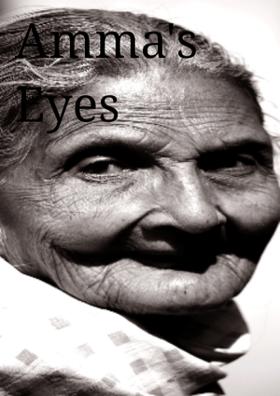Compensation
Compensation


The Compensation
"Based on the evidence of the City Sheriff, the Royal Court finds Prince Chandrabhan guilty of stealing pots of the town potter. The guilty is to be tied in the middle of the market and to be given 50 lashes as a common criminal." Maharaja Prataprao gave his just verdict in his grave voice.
The guilty looked up in anger. "How is it that I'm always punished? Why are you never lashed like a common criminal?" Prince Chandrabhan retorted indignantly.
"Because, I'm the king and you are a Royal Prince! And being a king gives me greater responsibilities as well as privileges." The King puffed up his chest and said importantly.
"Greater responsibilities be damned!" the bound culprit blasphemed against the Royal Majesty. "How come you always become a king and I'm always punished for something or another? Why can't I be the king for a change?"
"Beware, O condemned prisoner! You can be beheaded for this rebellious mutiny!" The incensed king tried to rise from his throne in Royal Majesty. This was too much for the rickety throne with three tottering legs and it toppled over in the ditch, taking His Royal Highness with it. The courtiers and the condemned man let go a not-so-courtly howl of laughter. While the emperor tried to climb back, bruised, his shirt torn and spitting gravel stuck in his teeth, he saw his mother turning the corner with a slipper in her hand and yelled, "My mom!" The court adjourned haphazardly and the courtiers scattered. The Royal Prince was caught by the attacking enemy as his hands were tied behind his back and the offending slipper was subjected to his Royal Posterior. He somehow managed to escape with a tingling bum.
The court reconvened near the empty school, where Pintya, the king was attacked by Chandu, the prince. The courtiers were promptly divided into two armies. The bloody and gory war raged for many years and thousands were killed. In the evening, a truce was signed, prisoners exchanged and the two friends walked home with hands in each other's neck.
Summer vacations had started last week and the brats of the village of Chandarpur in the famine struck Buldhana district of Maharashtra were beyond themselves. The villagers were harassed by their day-to-day antics. The skies were clear with little white clouds floating with the swift summer wind like tiny bunnies romping in a blue meadow. The clear blue skies, that would have gladdened the heart of an English gentleman, filled the hearts of the poor farmers with foreboding as they were the harbingers of dry season ahead. Last year rain was elusive and the crops had suffered. The meager crop of sugarcane was sold at half the expected price as it was sold standing in the fields. The cash crop of cotton was suffering without irrigation. The farmers initially tried to water their dying crops through well water, but when that was inaccessible too, they left it to the mercy of seasons and just stared at the merciless skies with vacant eyes.
Pintya was sitting under the tamarind tree near the school and waited for his friends impatiently. He found a thorny stick. A stick will always remain a stick in the hands of someone like yours truly, who's an unromantic and unimaginative adult. But, a stick can take various forms in the hands of a fertile brained child. It turned into a Dandpatta and the wielder became Bajiprabhu Deshpande, the fabled warrior, who was born in the same region, some 400 years ago and laid his life for his master, Chhatrapati Shivaji Maharaj. Pintya attacked and conquered the fort of Sinhgadh by defeating the vast Mughal army and died in the foray. It was a satisfactory battle as usual, where hundreds died. During the heat of the battle, one of the thorns in the stick grazed his thigh and caused a trickle of blood. This made the battle more realistic, where blood of noble warriors flowed from those impregnable Sahyadri mountains and the Mughal army was crushed mercilessly. Pintya was the warrior Bajiprabhu. He was the horse. He was the Mughal overlord ruling the fort. He was the Mughal soldiers, who died under his sword. He was Shivaji, who cried on his own death. He also tried to become the Mughal Emperor Aurangzeb, but did not know Urdu. So, this emperor used the Marathi lingo to blast his commanders for the loss of such a strategic fort. Overall, it was a fruitful and a satisfactory day.
After a long time he saw his friend Chandu walking towards him. Pintya hailed him and cursed him for his tardiness. Chandu was somber. Pintya ran towards the village, when he heard the news which Chandu had.
Bible says that miseries are sent to us by the Lord God to test our mettle. Those with a virtuous spirit pass the test and glow like an angel. The weaker willed succumb to it and are burned in the everlasting fires of hell till eternity. Tatyaram was one of the weaker willed ones. He couldn't see his kids crying with hunger and his wife suffering without any medical help. He was hoping for the cash crop and the rains, which would have ended their misery. The skies betrayed him. Finally he gave up and took the easy and cowardly way out by hanging himself. There was a mob outside his house. Pintya and Chandu joined it and tried to see the dead body. Someone spotted them and kicked them away. They climbed a nearby neem tree and saw Tatyaram's wife crying and his children huddled near a shrouded body. Pintya hoped for a breeze, so that he can see the face of the deceased. He had never seen a dead person before and was curious. After a long time, both the friends climbed down and went to their homes. Each lost in his own mysterious thoughts.
A child's heart is different than that of us grown ups. It can never remain bowed down for long. It's very resilient and elastic. It can forgive and encompass the entire world in it with space to spare and has the capability of healing itself of any hurt. We all are born with this magical heart. In the process of growing up, we lose these magical characteristics somewhere along the line. It's a debatable point if growing up is good or bad for mankind. Death has a sobering effect. The entire village, which was already bowed down under the anger of the brutal sky, was now subjected to another unmentionable fear. But, even death failed to subdue the boisterous spirit of childhood. The famed and noble dacoit Pratap Singh was attacking the neighboring kingdom of the wicked king Chandrasen. This time Chandu refused to be beaten as always and both friends fought and tore at each other. Things were happy and satisfactory as usual.
Pintya woke up and staggered out of his hut and was amazed! A large new car was parked before Tatyaram's hut. The sarpanch of the village was standing with folded hands before someone dressed in white. Pintya was mesmerized by the shining vehicle and caressed it gently. He hopped away like a startled hare to inform his brigade about this unusual incident.
The sarpanch was euphoric. His visitor was the PA of the Member of Parliament from the opposition party who wanted to visit the village and pay a compensation of one lakh to the bereaved widow as a token of sympathy from the merciful party. This was the first time that a political dignitary would visit this small village. The sarpanch was aware what this may mean to his political ambitions. If handled correctly, this visit may be the much awaited and long coveted ticket to the mainstream politics. He swore to make it a shining success.
The village common was cleaned. The streets were swept. Tatyaram's house, which was painted when it was constructed by his father, 60 years ago, was whitewashed from outside. The village was apprehensive. When one is buffeted for too long by fate, one gets the jaundiced eye and views favorable things with suspicion. The village was scared that this may be the beginning of another calamity, which will compound their already unbearable misery. The children were immune to this depressing pessimism and were treating this event as a celebration. An optimist is a person, who thinks that bullshit is a fertilizer and a child is an epitome of undying optimism.
Finally the auspicious day arrived when the MP of the opposition party was to visit the wretched village. A small stage was erected in the village common, outside the Bajrang Bali temple, who was smiling at this display of human hypocrisy through the newly painted door of his temple. The dusty streets of the village were decorated by buntings and flags of the opposition party. A shy crowd of motley ragged people were watching from a distance. The sarpanch and his gang were dressed to nines and seemed to be everywhere. Someone shouted that the great man has arrived. Ladies from the household of sarpanch stepped forward, clad in nine yards of sarees draped in Maharashtrian style, with a thal of aarti, and the MP was welcomed. Children were agog to see the gun totting bodyguards and the well fed and handsomely dressed MP. An artist finds inspiration in the most mundane of the subjects. Everything has a story. It just requires an imaginative mind to unearth it. Pintya found the subject for his next skylarking in this event. He will be the great MP and Chandu will be a notorious bandit, whom the MP will slay bare handed. Our hero was a bloodthirsty little devil like your writer.
The great man climbed on the stage. He was welcomed by the sarpanch, who praised him and his party for their kindness shown towards this backwater village. The MP was smiling and nodding, spreading his warmth over the poverty striken village, which was basking in the sunshine of his kindness. He was not a stranger to the cruel pangs of hunger. Only yesterday he missed his afternoon meal and was very hungry till he could find snacks at 7pm. There was a similar instance last year, when he had to go without dinner while on a tour. He knew how it felt to go without food for hours at a stretch. Today he had a hearty breakfast in the State Guesthouse to avoid a recurrence. He looked at the assembly with an empathy, which only those can feel who have experienced the misery firsthand. He finally stood up, cleared his throat importantly and his well modulated voice boomed over the hushed village.
"It's a sad state of events when the farmers, who are the providers for the nation, commit suicide in desperation as they are unable to feed their own family! My heart screams in pain and horror to see what the gods of the lands are reduced to by our ruling government! If they would have done their job, the farmers would have been prosperous."
Chandu whispered to Pintya, "Can the government make the clouds rain?"
"Of course, you fool!" Pintya laughed at the ignorance of his mate, "The government is very powerful. They have this huge machine in their palace which fills water in the clouds..." He would have explained this classified and advanced technology in detail, but was slapped by someone and threatened to sit quietly.
"People of Chandarpur! It's neither the situation, nor my nature to blame someone else for a deed gone horribly wrong. I'm here to show that unlike this government, my party cares for the farmers. We are offering one lakh to the bereaved family. I know that this money will not bring the deceased back, but it's just a token of our respect to the creed, which causes the food to be brought to our tables. After all, we can't really eat money!" He smiled and looked around at this conversational gem, which apparently was well rehearsed and much used. His cronies smiled politely and applauded. There was a scattered applause from the crowd.
"What did he say?" A nearly deaf and old farmer asked his neighbor, who shrugged.
The MP alighted from the stage importantly and went to the freshly whitewashed hovel of Tatyaram, the news reporters followed him with their cameras and mikes. Pintya beat them to it and was already standing at the hut. The village didn't have a television, but it was not a small satisfaction to the glory seeking child that his image will be broadcasted all over the nation. The bereaved widow arrived and the MP presented the check grandiloquently. Everyone applauded. Cameras clicked. The MP ruffled the hair of Pintya, thinking him to be the son of the dead farmer. Cameras zoomed in to capture this great moment. Everything was hunky-dory. The MP bent down condescendingly and asked the kid in a paternal voice, "What's your name, son?"
"Pratap." Pintya fumbled nervously.
"A great name. A name worthy of a great future. We will ensure that you have a bright future, son. Who do you think is responsible for this great loss of yours?"
The cameras waited expectantly, waiting for Pintya to throw some light on this enigma. The usually effervescent Pintya experienced the stage fright, which better people than him have experienced before. The smiling politician cajoled him further. The cameras waited. Pintya still hung fire. His toes were drawing an intricate pattern in the dusty ground.
"Say something, son. You are our future!" The smiling MP looked around, and was gratified by the approving nods of his sycophants. Someone nudged Pintya and he mumbled something.
"Speak louder, my boy! We all are waiting for the verdict of our next generation." The politician gave his best patronizing smile.
Pintya blurted out, "I think that if you would have given this one lakh a week earlier, Tatya kaka would still have been alive."
The cameras froze. The politician was trying to close his open mouth. The silent crowd was watching curiously. The flies buzzed their humming drone in the stifling heat. Let's draw a merciful curtain over this embarrassing scene and move on.
Somewhere a cloud rumbled in distance and the skies darkened. The usually arid wind carried an exhilarating whiff of incoming rains, the smell, which the better educated people call petrichor elsewhere.




























































